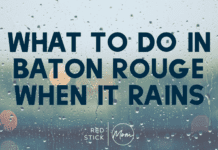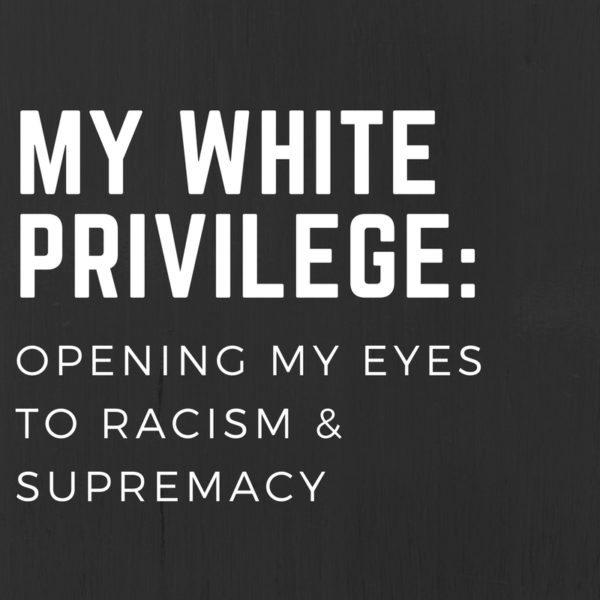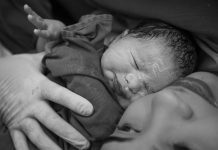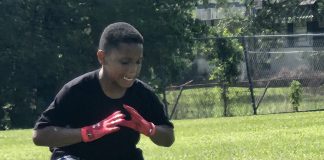For many years, I thought the best way to eliminate racism was to be colorblind and to teach my children to not see color. Social justice was important to me, and it seemed logical, at the time, that if I pretended that we are all exactly the same, the world would treat everyone as such. I remember the moment my heart changed. It was in the aftermath of Michael Brown’s death. The Ferguson protests were in the news, and as a Missouri native, many of my friends had a lot to say about it on social media. A friend of mine from middle school who is black, wrote a post about how many times he had been pulled over in his life. He included how many of those times his car had been searched. I don’t remember the exact number, but it was more than 20. My naive self was shocked. I have been pulled over 3 times in my life. Twice I was ticketed. All three times I was speeding. No one has ever asked to search my car. And before you make any assumptions, this friend is a clean cut Army veteran (not that it should matter, by the way). This was the first moment in a long journey of understanding my white privilege.
White privilege is often misunderstood.
It simply means that there are certain things I don’t have to think about due to the color of my skin. If you’re tempted to get defensive, don’t. Privilege is not about you personally. I’ve heard may people say that they don’t have white privilege because they are poor and have never been given anything in life. However, these things have nothing to do with white privilege (class privilege is a different story). White privilege does not mean that you’ll be rich or successful. It does mean that your skin color is society’s default. In her article White Privilege: Unpacking the Invisible Knapsack, Peggy McIntosh gives many examples. Some that I have noticed in my daily life include things like the fact that almost all of the popular children’s books have main characters who are white, the bandaids I purchase closely match my family’s skin tone, I’ve never had trouble finding a doll with hair similar to my daughter’s, and I have the ability to go through most days without thinking about the color of my skin.
I had a strong reaction to my new revelations about race: extreme guilt.
My eyes had been opened to a world I had failed to acknowledge for years, and I felt uncomfortable and guilty. I quickly learned that this was a common reaction. And that it’s important to remember that discomfort is good, but I didn’t do anything wrong that required me to feel guilty. It did, however, require me to be aware of how my privilege worked in the world. I had always believed that white supremacists were people in hoods who used racial slurs. But the more I learned, the more I realized that real supremacy exists in day to day life. It takes the form of being too comfortable to look at our laws and societal structures that disproportionately impact people of color.
I have almost reached the regrettable conclusion that the Negro’s great stumbling block in the stride toward freedom is not the White Citizen’s Council-er or the Ku Klux Klanner, but the white moderate who is more devoted to “order” than to justice; who prefers a negative peace which is the absence of tension to a positive peace which is the presence of justice; who constantly says “I agree with you in the goal you seek, but I can’t agree with your methods of direct action, …” – Martin Luther King, Jr.
The last several years have been uncomfortable, frustrating, and full of self-reflection.
It would be much easier for me to have never learned what white privilege really means (which ironically, is privilege). But I have realized that the more I lean in to all of those feelings, the more I’m able to recognize my privilege and start using it for good. I am much more aware of my assumptions, how I talk to others about race, and how I approach difficult situations. I have realized that dialogue about race is nothing to be afraid of and does not create division in the same way that dialogue about marital issues is not what created them. Dialogue is the first of many steps to healing and understanding.
If you would like to understand more about privilege and racism, these “entry level” resources have been helpful on my journey:
- “White Privilege: Unpacking the Invisible Knapsack” – Peggy McIntosh
- Dialogue on Race (this is an excellent series of classes held in Baton Rouge)
- “Explaining White Privilege to a Broke White Person” – Gina Crosley-Coroan (Warning that there is some foul language in this one)
- “What I Said When My White Friend Asked for My Black Opinion on White Privilege” – Lori Laken Hutcherson
- A Colony in a Nation – Chris Hayes





















bravo, ashley
http://aplus.com/a/viral-video-privilege-walk?utm_campaign=i102&utm_medium=referral&utm_source=a106158
Thank you for this! It is much needed in a world that doesn’t want to see the problem.
Dialogue is definely the first step to healing and understanding. Thank you for sharing.
Great article Ashley! Thx for being a courageous mom & example for your daughter. Kinda sad that it’s 2017 & we still have to embrace “courage” in order to speak truth. But sometimes it feels as though we are moving backwards. Thx! Cindy.
Perfect, thank you Ashley!